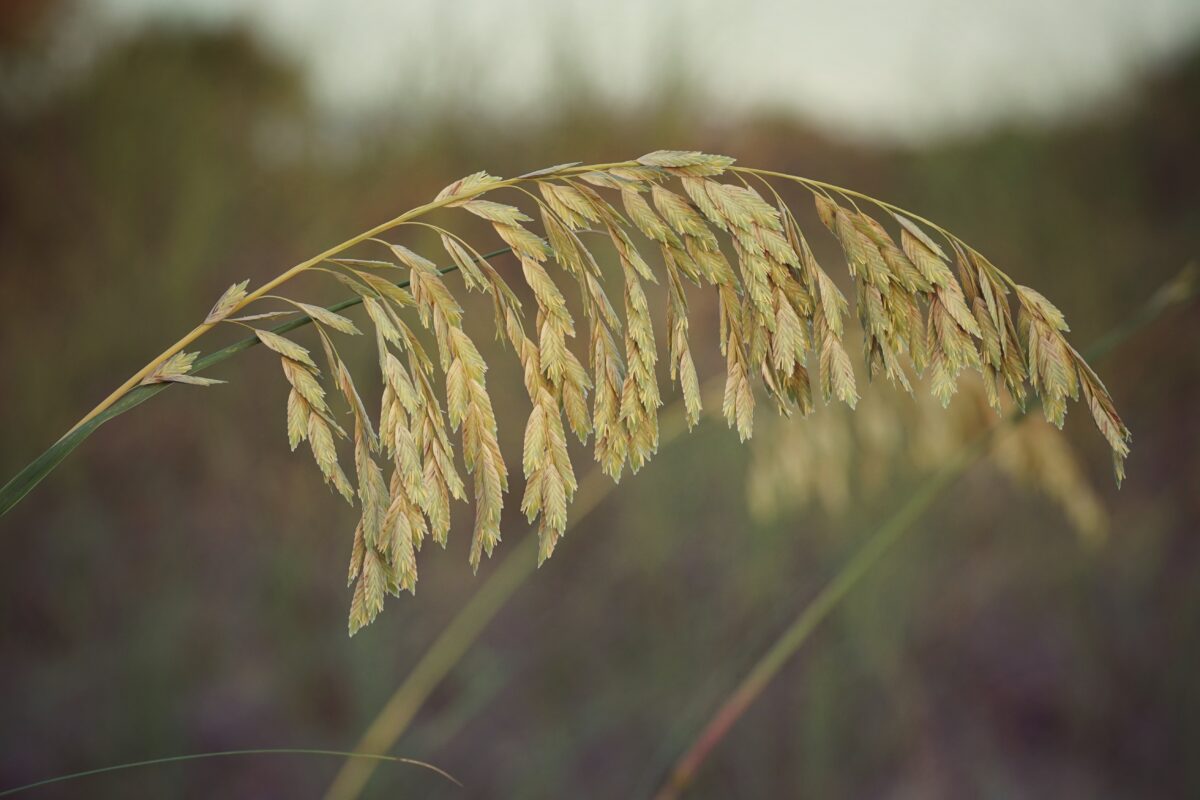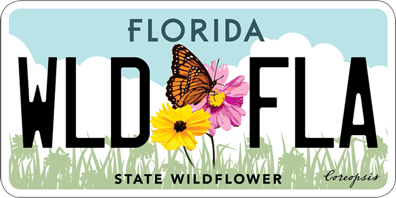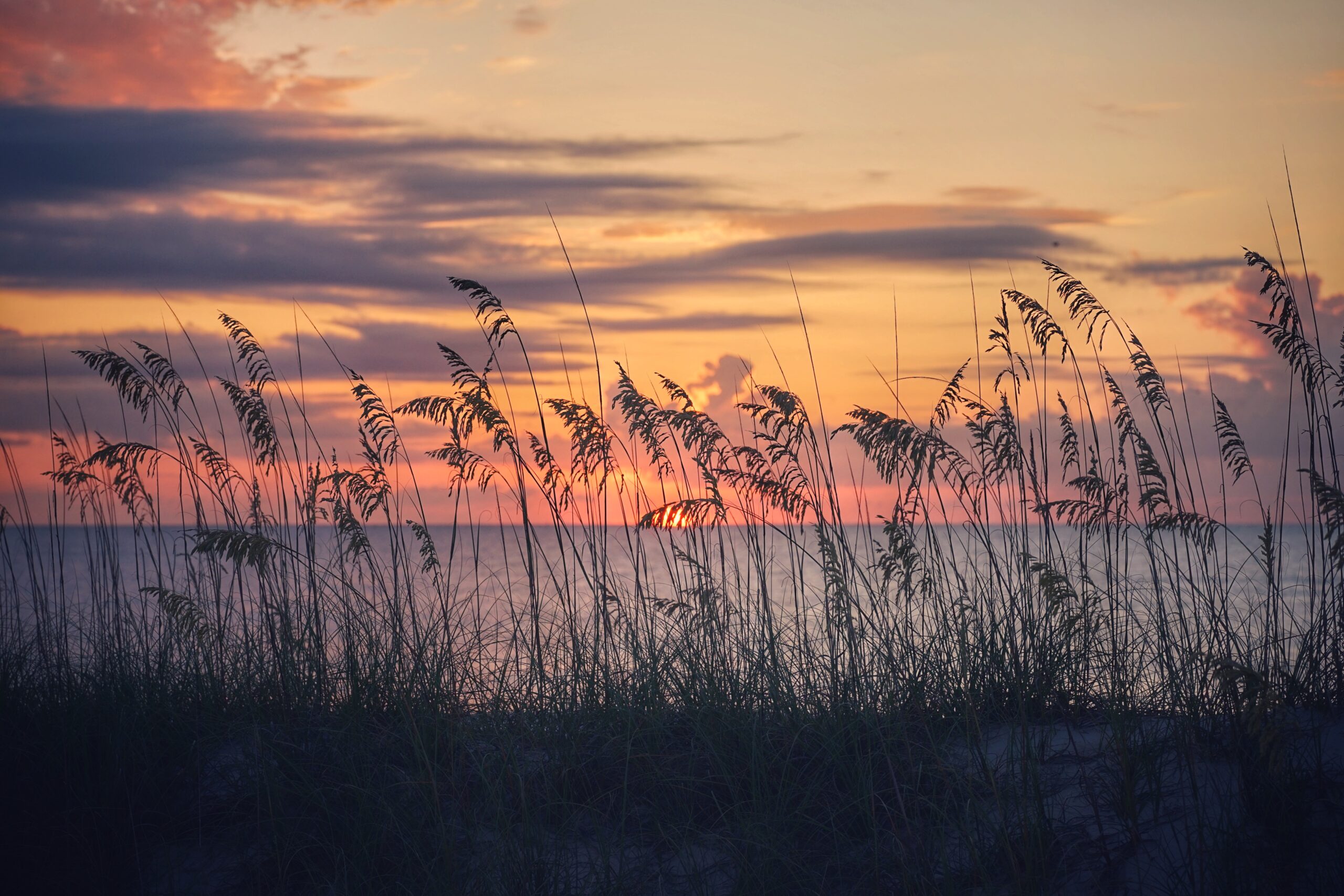Sea oats
Pictured above: Sea oats (Uniola paniculata) by Emily Bell. Click on terms for botanical definitions. View post as a PDF.
There is nothing more iconic to the Florida summer coastal scene than Sea oats (Uniola paniculata) swaying to the sea breeze in the dunes. The flowers of this tall and sprawling grass provide pollen to a variety of insects, and the seeds are eaten by beach mice, rabbits and birds.
Culms reaching up to 8’ bear branching panicles that can stretch to over 2’ and at maturity will droop down. Each panicle has numerous elliptical spikelets containing light green florets that produce yellow anthers. Leaves are up to 2’ long and slender with tufts of hairs near the collar. Single seeds are each born in a small (.3-.5 cm) caryopsis.

You’ve got to be incredibly tough to not only survive but thrive in the harsh sand dune ecosystem, and Sea oats are as hardy as they come. Not only do they withstand hurricane force winds and saltwater inundation from storm surge, but their deep dense roots (reaching down to 40’) anchor the surrounding sand in place, holding their whole habitat together. The coastal protection offered by Sea oats is so important that these plants are protected by Florida state statute.
Family: Poaceae (Grass family)
Native range: Most coastal counties and the Keys
To see where natural populations of Sea oats have been vouchered, visit florida.plantatlas.usf.edu.
Hardiness zone: 8A–11
Lifespan: Perennial
Soil: Well-drained and dry sandy soils
Exposure: Full sun
Growth habit: Tall and spreading grass growing up to 8’
Propagation: Root division or cuttings, seed
Gardening tips: Sea oats make a fantastic foundational specimen plant in coastal landscapes. Just be sure to give them plenty of space as they will spread via rhizomes. Other coastal species such as Dune sunflower (Helianthus debilis), Standing cypress (Ipomopsis rubra), and Pricklypear cactus (Opuntia humifusa) make great companion plants.
Sea oats are occasionally available from nurseries that specialize in Florida native plants. Visit www.plantrealflorida.org to find a nursery in your area.

